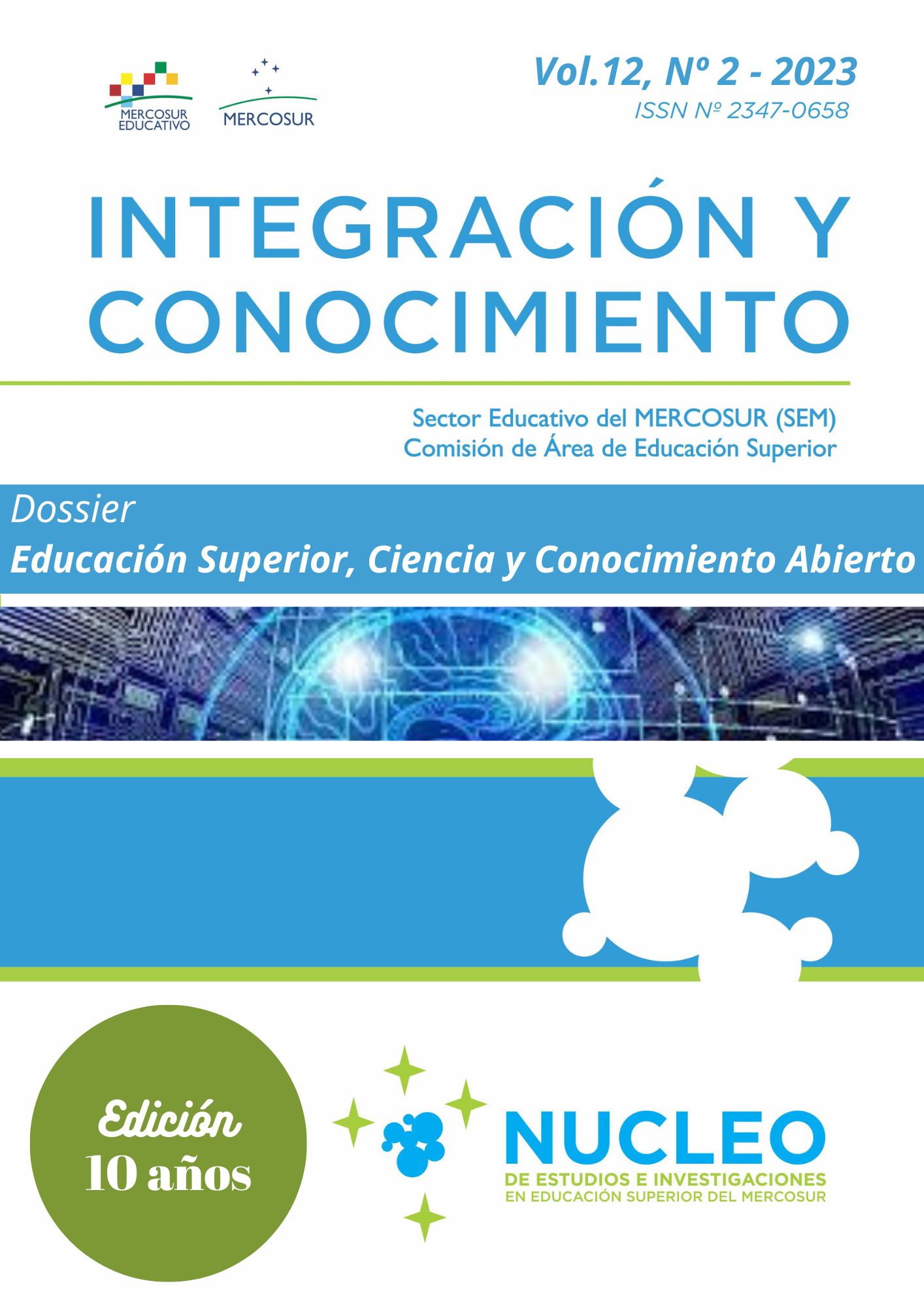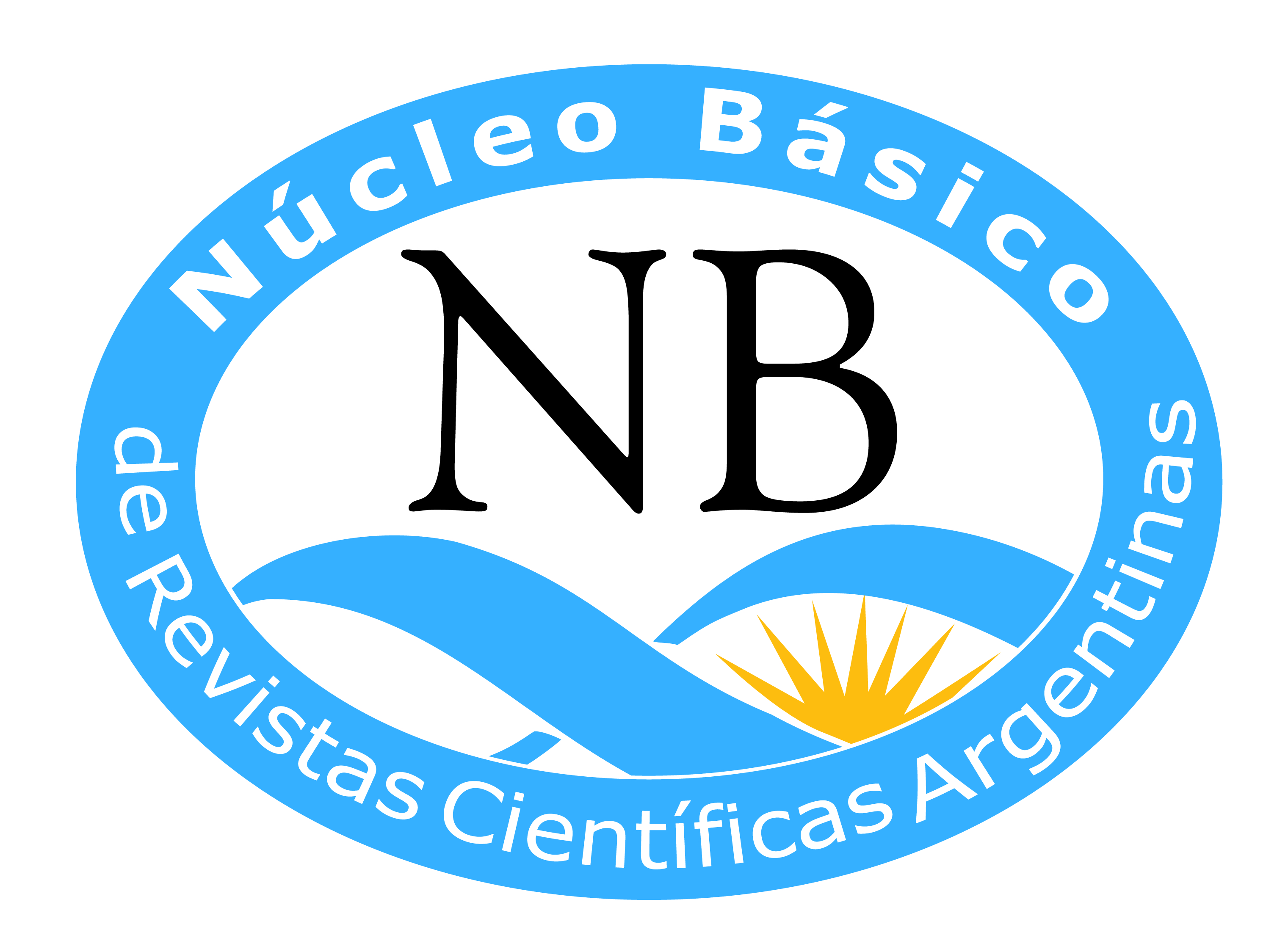Democratization of the internationalization of higher education: contributions from CRES 2018
DOI:
https://doi.org/10.61203/2347-0658.v12.n2.42053Keywords:
Democratization, Internationalization, Higher Education, Latin America and the Caribbean, CRESAbstract
The article seeks to understand the democratization process of the internationalization of higher education and the possible contributions of the III Regional Conference on Higher Education for Latin America and the Caribbean (CRES, 2018) in this process. Therefore, authors from different areas of knowledge are presented as relevant interlocutors to discuss the interconnection between the concepts of democratization and internationalization of higher education. For the methodology, bibliographical research was used to analyze reference works on the research themes in the first part of the article. As in the second part of the article, document research was carried out through the CRES 2018 Declaration and Action Plan content analysis. The results indicate that the CRES 2018 Declaration and Action Plan outlined an interesting path to discuss the internationalization of higher education, mainly through the promotion of government public policies that foster equal opportunities; the positioning of diversity as representative of the interculturality of the Latin American and Caribbean region; the support of a solidary and horizontal regional integration and university social responsibility as a form of transformation and emancipation of peoples.
Downloads
References
Abba, M. J. (2018). Límites y potencialidades para el desarrollo de una internacionalización de la educación superior necesaria: estudio de caso de la UNILA (Brasil) y la ELAM (Cuba). 2018. 279f. Tese (Doutorado em Educação). Programa de Pós-Graduação em Educação, Universidade do
Vale do Rio dos Sinos (UNISINOS), São Leopoldo, Brasil. Recuperado de: http://www.repositorio.jesuita.org.br/bitstream/handle/UNISINOS/7062/Mar%C3%ADa%20Julieta%20Abba_.pdf?sequence=1&isAllowed=y.
Abba, M. J., & Streck, D. R. (2019). Interculturality and Internationalization: Approaches from Latin America. SFU Educational Review. p. 110–126.https://doi.org/10.21810/sfuer.v12i3.1020
Abba, M. J., Streck, D. R. (2021). A Reforma de Córdoba de 1918 e a internacionalização universitária na América Latina. Revista História Da Educação, 25, e102256. Recuperado dehttps://seer.ufrgs.br/index.php/asphe/article/view/102256
Adorno, T. (1995). Educação e emancipação. Rio de Janeiro: Paz e Terra.
Azevedo, J., Gentili, P. (2000). Utopia e Democracia na Educação Cidadã. Porto Alegre, Brasil. Universidade/UFRGS/Secretaria Municipal de Educação.
Bôas Filho, O. V. (2013). Democracia: a polissemia de um conceito político fundamental. Revista Da Faculdade De Direito, Universidade De São Paulo, 108, 651-696. Recuperado de https://www.revistas.usp.br/rfdusp/article/view/67999
Bobbio, N. (2007). Estado, governo, sociedade: para uma teoria geral da política. Rio de Janeiro: Paz e Terra.
Bobbio, N. (1997). O futuro da democracia: uma defesa das regras do jogo. Rio de Janeiro: Paz e Terra.
Borón, A. (2000). Democracia e Neoliberalismo: história de uma relação infeliz. Argentina.
Cunha, M. I. D. (2016). Internacionalização e democratização: Uma tensão na qualidade da educação superior. São Leopoldo, Brasil. Oikos
De Wit, H., Hunter, F., Egron-Polak, E., & Howard, L. (2015). Internationalisation of higher education: A study for the European parliament. http://www.europarl.europa.eu/RegData/etudes/STUD/2015/540370/IPOL_STU(2015)540370_EN.pdf
DidouAupetit, S. (2017). La internacionalización de la educación superior en América Latina: Transitar de lo exógeno a lo endógeno. México. Unión de Universidades de América Latina y el Caribe (UDUAL).
Fernández Lamarra, N.; Albornoz, M. (2014). La Internacionalización de la Educación Superior y la Ciencia en Argentina. En: S. DidouAupetit; V. J. Escobar (Coord.), Internacionalización de la Educación Superior y las Ciencias en América Latina: Un Estado del Arte (pp. 17-48). Caracas: UNESCO-IESALC; Argentina, Mendoza: Editorial de la Facultad de Filosofía y Letras de la Universidad Nacional de Cuyo.
Finardi, K. R. (2022). As línguas e rankings no Oscar da internacionalização das produções científicas latinoamericanas: Languages and Oscar rankings oftheinternationalizationofLatin American scientificproductions. Estudos Linguísticos (São Paulo. 1978), 51(1), 147-161.https://doi.org/10.21165/el.v51i1.3180
Finardi, K. R., Macêdo Mendes, A. R., & Aparecido da Silva, K. (2022). Tensions and directions of internationalization in Brazil: Between competition and solidarity. Education Policy Analysis Archives, 30, (58).https://doi.org/10.14507/epaa.30.6823
Franco, M. L. (2012). Análise de conteúdo. Brasília: Liber livro.
Freire, P. (1981). Pedagogia do Oprimido. Rio de Janeiro, Brasil. Paz e Terra.
Freire, P. (1994). Pedagogia da Esperança: Um reencontro com a Pedagogia do oprimido. Rio de Janeiro, Brasil. Paz e Terra.
Freire, P. (2000). A Educação na Cidade. São Paulo, Brasil. Cortez.
Freire, P. (2001). Política e Educação. 5ª ed. São Paulo, Brasil. Cortez.
Hildeblando Junior, C. A.; Finardi, K. (2020). Telecolaboração e Internacionalização do Ensino Superior: reflexões a partir da pandemia Covid-19. Revista intercâmbio, v. 45, p. 254-278.
Jones, E., Leask, B., Brandenburg, U., & de Wit, H. (2021). Global Social Responsibility and the Internationalisation of Higher Education for Society. Journal of Studies in International Education. p. 330–347.https://doi.org/10.1177/10283153211031679
Knight, J. (1994). Internationalization: Elements and Checkpoints. Canadian Bureau for International Education, n. 7, p. 1-15.
Knight, J. (2004). Internationalization Remodeled: Definition, Approaches, and Rationales. Journal of Studies in International Education, Vol. 8 No. 1, pp 5–31.https://doi.org/10.1177/1028315303260832
Knight, J. (2020). Internacionalização da educação superior: conceitos, tendências e desafios. São Leopoldo, Brasil. Oikos.
Leal, F. G., Moraes, M. C. B., &Oregioni, M. S. (2018). Hegemonia e contra-hegemonia no contexto da internacionalização da educação superior: Critérios para uma análise crítica e reflexiva do campo. Integrácion,2(7)
Leal, F., Finardi, K., & Abba, J. (2022). Challenges for an internationalization of higher education from and for the global south. Perspectives in Education, 40(3), 241-250. Recuperado de:https://journals.ufs.ac.za/index.php/pie/article/view/6776
Leal, F.; Souza de, S.; Barreto Moraes, C. M. (2021). Reflexões sobre o diálogo entre a internacionalização e a extensão universitárias. Recuperado de:https://iberoamericasocial.com/reflexoes-sobre-o-dialogo-entre-a-internacionalizacao-e-a-extensao-universitarias/
López Segrera, F. (2016). Educación Superior Comparada: Tendencias Mundiales y de América Latina y Caribe. Avaliação, 21 (1), pp. 13-32.
Pereira da Silva, F. O Fim da Onda Rosa e o Neogolpismo na América Latina. Revista Sul-Americana de Ciência Política, v. 4, n. 2, p. 165-178, 10 nov. 2018.
Quijano, A. (2005). Colonialidade do poder, eurocentrismo e América Latina. A colonialidade do saber. Eurocentrismo e ciências sociais. Perspectivas latino-americanas, p. 227–278.
Santos, F. S., & de Almeida Filho, N. (2012). A quarta missão da universidade: internacionalização universitária na sociedade do conhecimento. Imprensa da Universidade de Coimbra/Coimbra University Press.
Segrera, F. (2016). Educación Superior Comparada: Tendencias Mundiales y de América Latina y Caribe. Avaliação: Revista da Avaliação da Educação Superior (Campinas), 21(1), 13-32. https://doi.org/10.1590/S1414-40772016000100002
Sousa, A. S.; Oliveira, S. O.; Alves, L H. (2021). A pesquisa bibliográfica: princípios e Fundamentos. Cadernos da Fucamp, v.20, n.43, p.64-83/2021. Disponível em: https://revistas.fucamp.edu.br/index.php/cadernos/article/view/2336
Stein, S. (2020). Internationalization for an uncertain future: Tensions, paradoxes, and possibilities. The Review of Higher Education, v. 41, n. 1, p. 3–32.
Streck, D.; Abba, J. (2018). Internacionalização da educação superior e herança colonial na América Latina. In: L. Korsunsky; D. Del Valle; E. Miranda [et al.] (Comp.). Internacionalización y producción de conocimiento: el aporte de las redes académicas (pp. 113-131). Ciudad Autónoma de Buenos Aires: IEC - CONADU; Ciudad Autónoma de Buenos Aires: CLACSO.
Streck, D.; Abba, J.; Da Rosa, C. (2020). Entre feitiços e contrafeitiços na Internacionalização do Ensino Superior: notas sobre o Centro de Estudos Internacionais em Educação. Brasília, Brasil. Cátedra UNESCO de Juventude, Educação e Sociedade; Universidade Católica de Brasília.
Tamarit, F.; Juri, H.; Guajardo, P. (2018). Prólogo. In: Gacel-Ávila, Joceline (Cood.). Educación superior, internacionalización e integración en América Latina y el Caribe.
Balance regional y prospectiva. Caracas: UNESCO- IESALC y Córdoba: Universidad Nacional de Córdoba.
Touraine, A. (1996). O que é a democracia? Petrópolis, RJ: Vozes.
UNESCO-IESALC. (2018). Declaração da CRES 2018. Disponível em: http://www.cres2018.unc.edu.ar/uploads/Declaracion2018-Port-CRES.pdf
UNESCO-IESALC. Plan de Acción 2018-2028. Disponível em: https://drive.google.com/file/d/1Mr_obMED-yv2RalSeC6L1YeStb1C9tiU/view
UNESCO-IESALC. (2020). Hacia el acceso universal a la educación superior: tendencias internacionales. Recuperado
de:https://www.iesalc.unesco.org/wp-content/uploads
/2020/11/acceso-universal-a-la-ES-ESPANOL.pdf
Walsh, C. (2012). Interculturalidad y (de)colonialidad: Perspectivas críticas y políticas. Visão Global, v. 15, n 1-2, p. 61-74. Recuperado de: http://editora.unoesc.edu.br/index.php/
visaoglobal/article/view/3412
Downloads
Published
Issue
Section
License
Copyright (c) 2023 Integración y Conocimiento

This work is licensed under a Creative Commons Attribution-NonCommercial-ShareAlike 4.0 International License.
Authors who have publications with this journal accept the following terms:
a. Authors shall retain their copyright and guarantee the journal the right of first publication of their work, which shall simultaneously be subject to the Creative Commons License of Recognition which allows third parties to share the work as long as its author is indicated and its first publication is this journal.
b. Authors may adopt other non-exclusive licensing agreements for the distribution of the published version of the work (e.g., depositing it in an institutional telematic archive or publishing it in a monographic volume) provided that the initial publication in this journal is indicated.
c. Authors are allowed and encouraged to disseminate their work via the Internet (e.g. in institutional telematic archives or on their website) after publication of the article, which may lead to interesting exchanges and increased citations of the published work. (See The Effect of Open Access).



